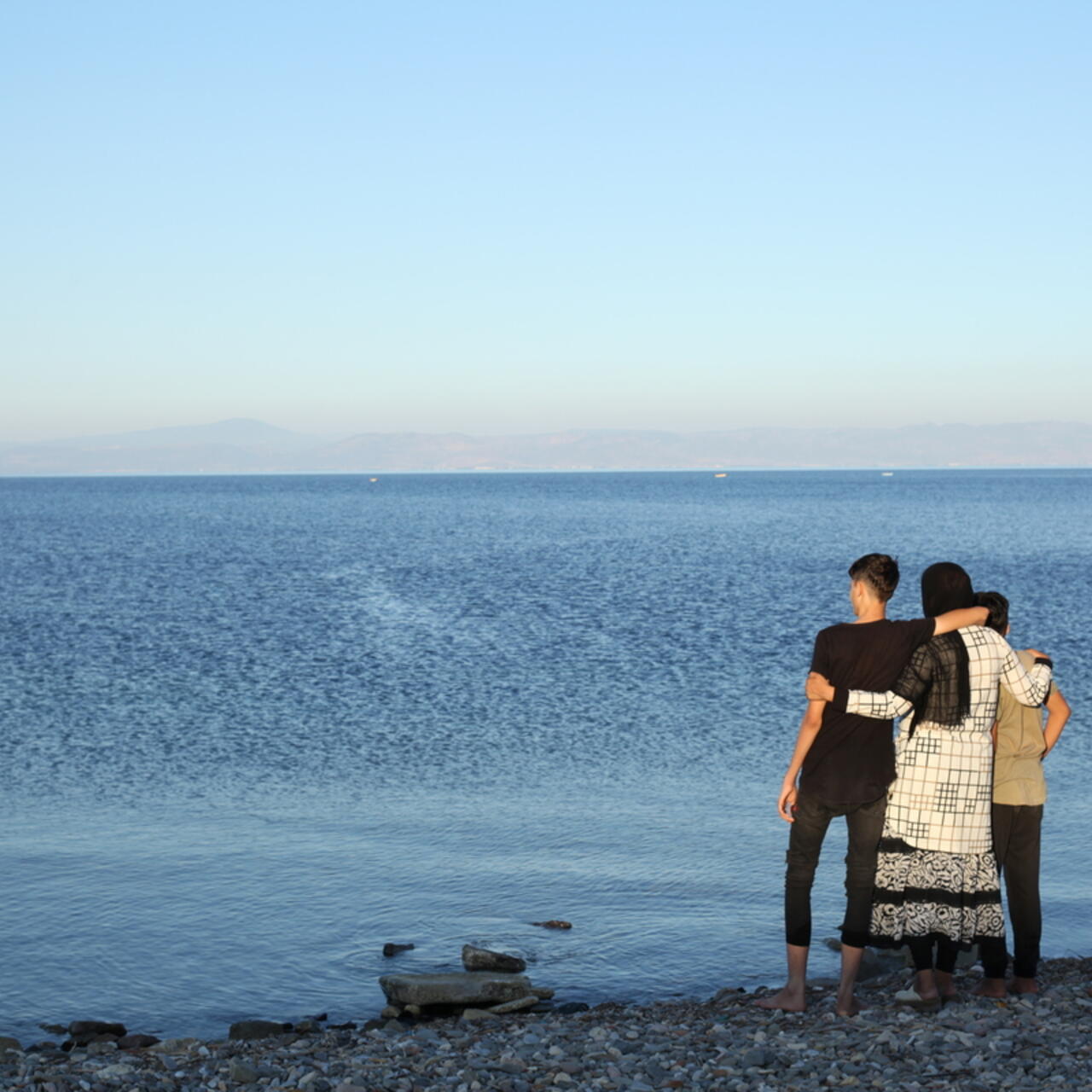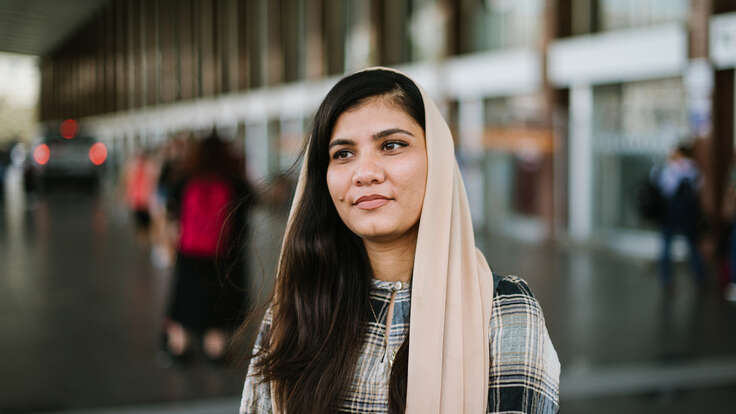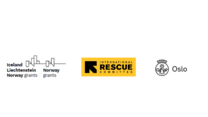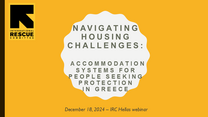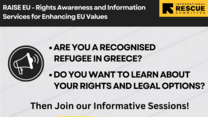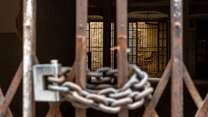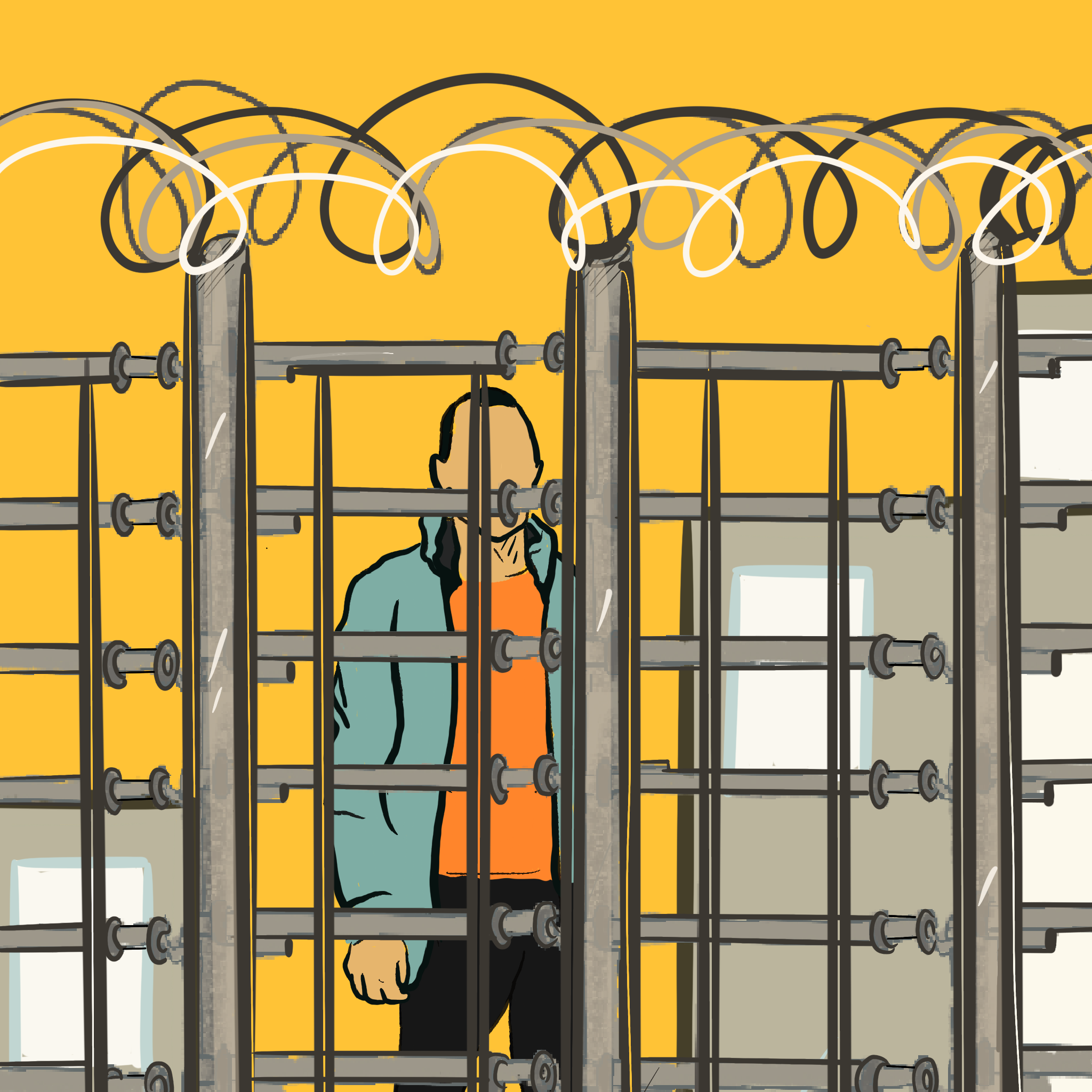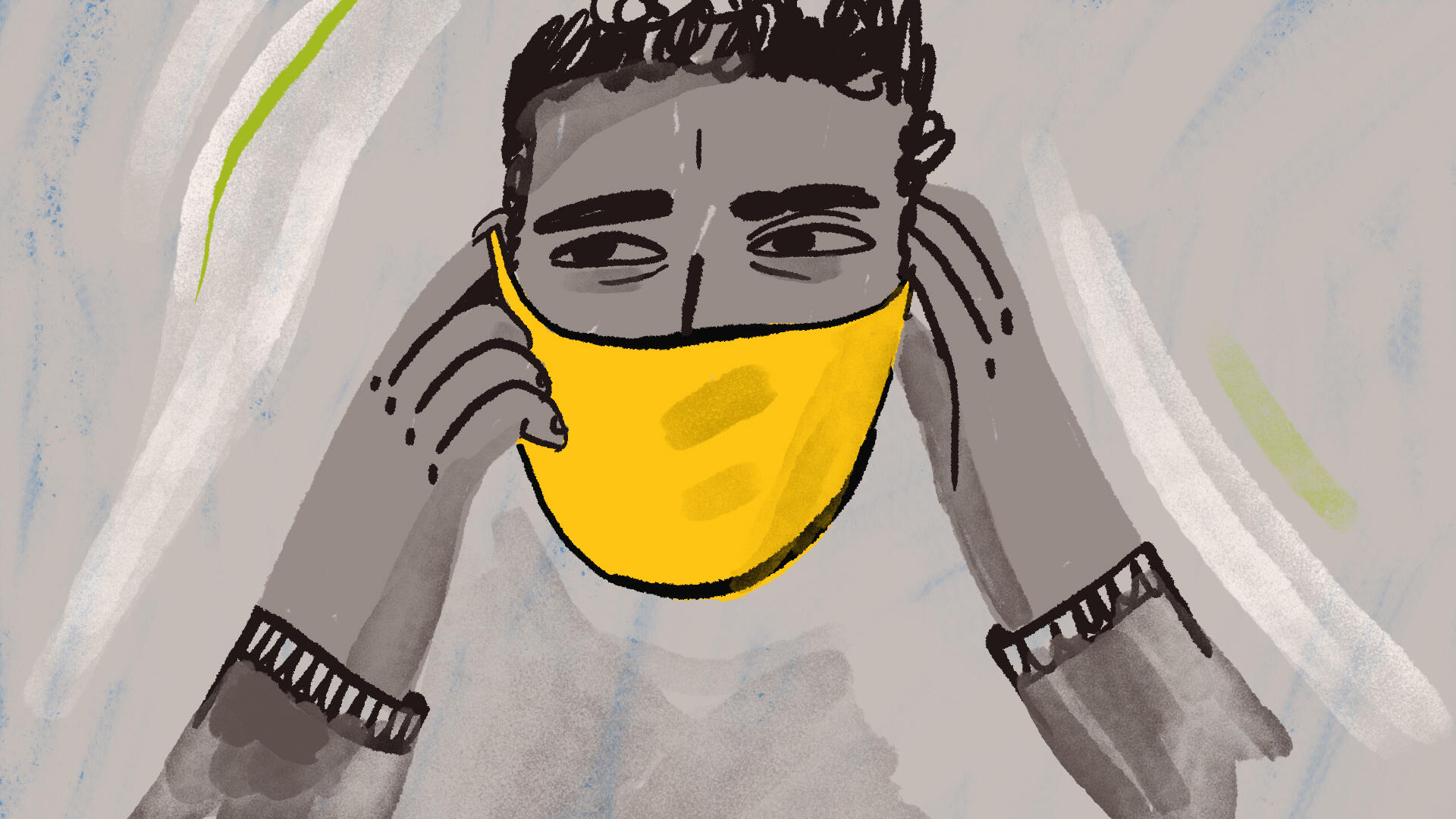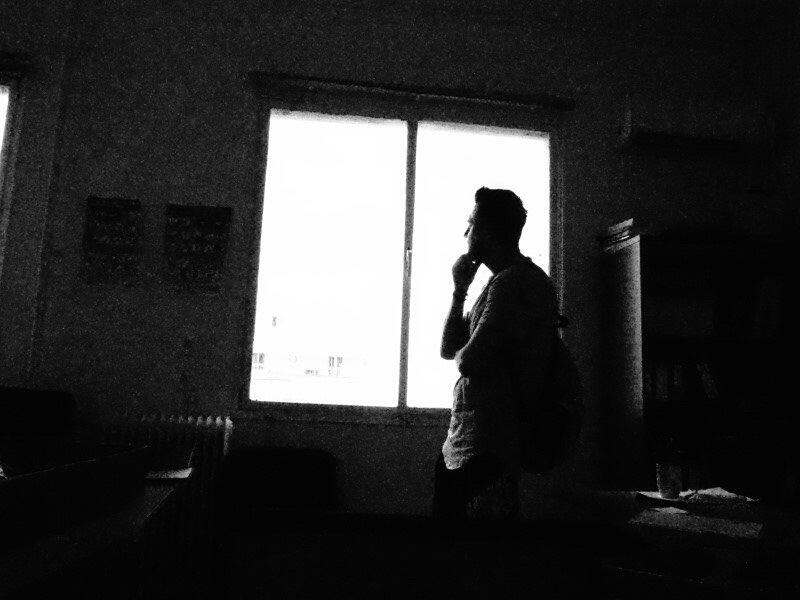Κάντε κλικ εδώ για να δείτε τη σελίδα στα ελληνικά
The International Rescue Committee (IRC) Hellas started operating in Greece in 2015, on the island of Lesvos, in response to the unprecedented number of refugees arriving on the island at the time.
Our mission at IRC Hellas is to help people whose lives and livelihoods are shattered by conflict and disaster, to survive, recover and gain control of their future.
Our vision is to be recognised as a key civil society stakeholder supporting an expanded body of vulnerable people become empowered and thrive through inclusive, feminist-oriented and sustainable programs.
Since the start of programming in Greece, the IRC has provided support and protection services to people living in camps and urban settings. Directly, or in collaboration with partners, we have provided shelter, emergency supplies, safe transportation, access to water, sanitation and hygiene facilities, vital, reliable, and up-to-date information, protection for people with vulnerabilities, mental health and psychosocial support, as well as employability services to refugees, asylum-seekers and other vulnerable individuals in Greece.
Our work in Greece
Our team of professionals on humanitarian response and social services, is currently engaged in Athens, Thessaloniki and on the island of Lesvos, and until the first months of 2022 on Samos and Chios, and we provide nationwide up-to-date reliable information through Refugee.Info.
On Lesvos we provide mental health and psychosocial support. In Athens, we provide a variety of child protection, women’s empowerment and support, legal aid, gender, equality and inclusion, advocacy and labour market integration services.
Our main programmes focus on:
Since August 2019, IRC Hellas has been implementing a child protection program in Athens, aiming to support unaccompanied children—16 years old and over for their independence and smooth transition to adulthood. The Supported Independent Living (SIL) program for unaccompanied children offers accommodation in supervised apartments and is considered as an alternative form of care promoting individualized support, fully aligned with the best interests of each child. Each apartment accommodates up to four children of different nationalities, supported by a team of experienced professionals, including social workers, caretakers, psychologists, educators, interpreters and lawyers. Currently, the IRC implements the program in three SIL apartments for unaccompanied children, funded by the national program of the Asylum, Migration and Integration Fund 2014-2020 (AMIF).
Since April 2021, IRC Hellas has also supported deinstitutionalization efforts in Greece, through the pilot implementation of the program "Semi-independent living in apartments, for children over 15 years old and young adults living in Child Care Institutions in Greece" – regardless of ethnic, racial or other characteristics. The project was implemented within the framework of the project "Child Guarantee", in cooperation with UNICEF, the Ministry of Labour and Social Affairs (now Ministry of Social Cohesion and Family), and the Institute of Child Health. In the project, two apartments were established in Athens that hosted four adults and two teenage girls close to adulthood. The individuals received personalized psychosocial support, as well as educational, legal and recreational activities and services. The main objective of the project was to empower beneficiaries to become independent and acquire the necessary skills for adult life. Therefore, the services provided by IRC also aimed at skills development through employability support, combined with counseling and career guidance.
In February 2023, IRC Hellas commenced prevention programming under “CARE: Community-Based Primary Prevention of Gender-based Violence in Greece and Italy” funded by the European Commision and the Citizens, Equality, Rights and Values Programme (CERV), leading a binational consortium consisting of Caritas Hellas, Global Girl Media and Centro Penc.
CARE aims at contributing towards the prevention of gender-based violence against women and girls, with a focus on intimate partner violence, by addressing the root causes of it. The IRC will implement community-based interventions that engage women to build peer support networks, empowerment, and capacity to lead change in their communities and support other women. Men will be engaged in a transformative process to foster accountability, encourage change of gender-based violence related gender norms, shift in attitudes, and likelihood of bystander intervention, guided by the voices of women.
Since February 2016, IRC Hellas has been offering a comprehensive Mental Health and Psychosocial Support (MHPSS) programme, aiming to ensure that refugees and asylum seekers receive the MHPSS services they need to cope with past violence and persecution, as well as displacement. The MHPSS programme currently operates in Lesvos, following the increased transfers of people from the islands to the mainland. It’s worth mentioning that in Lesvos, members of the host community were also included in the target population, responding to the lack of mental health support services on the island.
When necessary, the team conducts referrals to private psychiatrists, neurologists, and to the local hospitals, as well as to NGOs for legal support, accommodation, and educational activities among others, while the IRC covers the medication in order to ensure access to the treatment.
In the context of the programme, psychosocial group activities, including psycho-education sessions, are offered in different mental health topics with the goal of raising awareness regarding mental health problems, reducing stigma through the provision of information, identifying people who are in need of mental health support but also enhance the social support of the participants. Focus is also given to capacity building of other key actors (mental health professionals and other first responders, such as volunteers and employees of NGOs and public stakeholders) that work with refugees, to ensure improved quality of care and access to service provision for people in need of mental health care. Since November 2022, the MHPSS team has started the provision of support groups to first responders (professionals and volunteers of other organisations) by recognising the need but also providing a holistic approach to all the people included in the service provision of the refugees, migrants and vulnerable host population.
Started in 2015 as a mobile website, Refugee.Info provides critical information to thousands of asylum-seekers, refugees and migrants residing in Greece and/or traveling across Europe. It has since evolved into a unique, informative and trusted resource with 115,000 followers on Facebook in April 2024, , for asylum seekers, refugees, migrants and aid actors. The programme provides information through its newly redesigned website and maintains a helpdesk through its Facebook page and a service mapping across Greece.
Since April 2022 Refugee.Info has partnered with Mobile Info Team in an effort to reach more people by joining forces - current partnership is in place until June 2023. Mobile Info Team responds to all the messages received through the Refugee.Info Facebook Page in English, Arabic, Urdu, French, Farsi and if needed in Ukrainian too.
Refugee.Info’s mission is to follow all the latest asylum procedures as well as all other procedures on housing and benefits, rights and obligations that directly impact asylum seekers and refugees. Information is accurate, up-to-date, time-sensitive and timely shared through the website in Arabic, Farsi, Urdu, French, English, Somali and Ukrainian. Refugee.Info follows a strict escalation protocol to inquiries concerning protection cases, links the Refugee.Info with other online community groups based in refugee camps and urban areas in Greece, work with partners, NGOs, governments, refugees and asylum-seekers to make sure the information provided is useful, and utilises text to speech technology to render all articles and service mapping pages more accessible to people with sight problems or low literacy.
In 2022 and 2023, Refugee.Info with its partner at that time Mobile Info Team, conducted a research project with Immigration Policy Lab and University College of London. The research focused on how online provision of content through static information (website) and dynamic information provision (two-way communication) can be improving understanding and awareness of our target audience on the topics of human trafficking and labor exploitation. The study, published in January 2024, found that legal information improved knowledge about what constitutes labor exploitation (including trafficking), as well as ability to cope with violence (measured as the knowledge on how to seek help after experiencing violence and likelihood of speaking to others in their community about it).
Since 2017, IRC Hellas has been providing, directly and in collaboration with partners, employment and self-employment services and skills development. The focus of the programme is to support refugees, migrants, and vulnerable locals, to integrate into the labour market.
Employability and Entrepreneurship: The IRC provides employability services to refugees, migrants, and vulnerable Greeks, such as individual job counselling and job readiness workshops that develop crucial skills, as well as an introduction to labour rights and familiarisation with Greek work culture. Over 2,000 people have received employability support to date, from the IRC and its partners. As part of the Resilient Futures programme funded by Citi Foundation the IRC provides employment services directly to vulnerable youth as well as self-employment support. In addition, and in partnership with Alba Graduate Business School, the American College of Greece, the IRC implements “Craft your Business”, a business training and coaching program where clients receive business training and coaching and have the opportunity to apply for start-up grants and further technical and professional support. Over 500 people have received entrepreneurship support to date.
Education and Cultural Orientation: The IRC supports the early integration and cultural orientation of refugees and asylum seekers in Athens, through Greek language courses, basic computer literacy and other cultural orientation and skills building activities.
Holistic support for UAC reaching adulthood: The IRC, in collaboration with UNHCR offers empowerment and self-reliance support to youth 18-21 in the form of a holistic programme that provides psychosocial support, Greek language lessons, career counselling, housing navigation support and educational opportunities, such as vocational trainings and scholarships.
Additionally, the project "Bridging Futures" aims to enhance the socio-economic integration and autonomy of former unaccompanied refugee children (aged 18-23) through collaboration between Greece and Norway. Funded by the EEA/Norway Grants, the project is implemented by IRC Hellas and the Child and Family Agency - Municipality of Oslo, focusing on creating a supportive framework to improve the quality of life and opportunities for young refugees.
Also, IRC Hellas participates as a partner of IOM (implementation of a sub-project) in the Helios+ Project of the Region of Attica, specifically as a member of the consortium coordinated by Caritas Hellas. HELIOS+ aims to empower beneficiaries of International and Temporary Protection residing in Greece by providing them with the tools and resources needed to achieve socio-economic independence and active participation in the Greek community.
IRC Hellas is also leading "PROGEDI: Promoting Gender Equality, Diversity and Inclusion in the Workplace", a 16-month project with two (2) partners, KEAN and Generation 2.0 RED, co-funded by the European Union [European Commission's’ Citizens, Equality, Right and Values (CERV) program].
The main objectives of the project are: (1) To foster a sustainable culture of inclusion in Greece, by raising awareness and strengthening the capacity in multi-dimensional diversity in small and medium-sized enterprises (SMEs), Civil Society Organisations (CSOs) and selected public sector agencies and creating dialogue platforms between civil society, academia, underrepresented communities and businesses, and (2) to strengthen national and transnational cooperation on diversity management and inclusion practices through the sharing of best practices, resources and tools in Greece and Europe.
In 2023, IRC’s partner, Generation 2.0 RED, produced the Baseline Assessment Report, which assessed the perspectives on the added value and benefits of Diversity, Equality and Inclusion (DEI), better understood existing DEI practices of targeted SMEs, explored priorities and plans for further DEI measures, and assessed HR, managerial and organization needs. Additionally, IRC Hellas hosted two (2) Stakeholder Workshops and five (5) Dialogue Sessions with the participation of more than 50 professionals working in various positions in the private sector and CSOs. Lastly, KEAN organized the first transnational webinar between representatives of Diversity Charters from other EU countries, as well as professionals and stakeholders interested in diversity management and inclusion in the workplace.
IRC Hellas advocates in Greece and the EU for the protection of the rights of asylum seekers and refugees regarding access to territory, asylum procedures, reception conditions, protection services, access to information and integration.
Working in close cooperation with the IRC programmes in Greece, the advocacy team conducts research and compiles reports, briefings and letters, addressed to decision makers to keep them aware of the reality on the ground, possible breaches of legislation and policies, provide recommendations and organises meetings and events to bring policymakers together and push for the full respect of asylum seekers and refugees’ rights. The advocacy team also cooperates with other NGOs to share information and produce joint briefings, reports and press releases.
Our key outcomes are:
- All children in Greece, have access to the territory and to a fair asylum procedure.
- Greece ensures a fair asylum process based on international, European and national legal provisions.
- Greece meaningfully enhances access to dignified accommodation and labour market for refugees and asylum seekers, with focus on vulnerable groups among them.
To achieve those outcomes, the advocacy team has organised several workshops over the last few years, including cooking workshops in Lesvos and storytelling ones in Athens, to bring together refugees, asylum seekers and the host community, to promote peaceful coexistence and social inclusion, through intercultural dialogue and the sharing of common experiences.
Following the successful completion of the Legal Support Program (Afghan Appeal Project) for Afghan evacuees, implemented from October 2021 to September 2023 in collaboration with partners in Albania (Nisma ARSIS), Serbia (Info Park) and Greece (HIAS, ELIL, LCL), the legal support program continues to address the urgent legal needs of IRC Hellas' clients. Through the provision of direct and personalized legal advice, as well as by conducting group legal information sessions, we aim to ensure access to essential legal information for both Ukrainian displaced persons and applicants for international protection. In the perspective of a holistic support to the people already assisted by our programs, the legal awareness program is intended to familiarize persons seeking and in need of protection with their rights, in order to empower them towards the effective exercise of them.
As of March 2024, IRC Hellas, in partnership with the Ioannina-based NGO A.S.P.I.DA, is implementing a new awareness and information project on the rights of recognized refugees and the enhancement of EU values. The project "RAISE EU- Rights Awareness and Information Services for Enhancing EU Values", which seeks to empower beneficiaries of international protection through information sessions and related advocacy activities, is being carried out in the framework of the BUILD program. The program "Building a robust and democratic civic space" (BUILD) aims to protect, promote and raise awareness of EU fundamental rights and values by supporting civil society organisations (CSOs) in Greece and Cyprus and strengthening their capacities and sustainability. BUILD is co-funded by the European Union, through the Citizens, Equality, Rights and Values (CERV*) program, and by the Bodossaki Foundation and the NGO Support Centre Cyprus with a total grant amounting to €2.9 million. BUILD is coordinated by the Bodossaki Foundation (Greece) in partnership with the NGO Support Centre (Cyprus).
Dimitra Kalogeropoulou
Director of IRC Hellas
+30 695547511064
Dimitra.Kalogeropoulou@rescue.org
Panepistimiou str., Athens
- Ampney Brook Foundation
- Bessemer Trust
- Breakthrough Prize Foundation
- Charles Anteokounmpo Family Foundation
- CITI Foundation
- European Commission (DG HOME, DG JUST)
- European Union, Special Service of Coordination and Management (Hellenic Ministry of Migration and Asylum) under the Asylum, Migration and Integration Fund (AMIF)
- EEA/Norway Grants (“Asylum and Migration” programme)
- Goldman Sachs Gives
- Heritage Fund of the International Ladies' Garment Workers' Union for the 21st Century (ILGWU)
- Huang Chen Foundation
- Malcolm Hewitt Weiner Foundation
- METAdrasi - Action for Migration and Development
- Regional Development Fund of Attica
- SOL Crowe
- Starbucks Foundation
- Tereska Foundation
- Trip Advisor
- United Nations High Commissioner for Refugees (UNHCR)
- United Nations International Children's Emergency Fund (UNICEF)
- University College London (UCL)
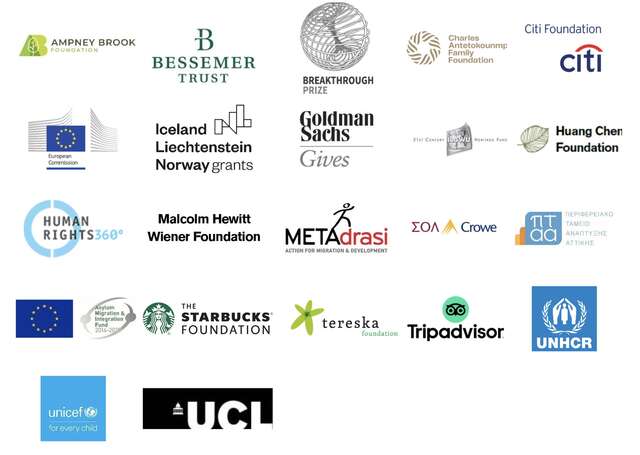
- Alba Graduate Business School
- Centro Penc
- Network for Children’s Rights
- European Lawyers in Lesvos (ELIL)
- Foundation for Access to Rights (FAR)
- Generetion 2.0 RED
- Global Girl Media Greece
- HIAS
- Irida Women’s Center
- Caritas Hellas
- Cell for Alternative Youth Activities (ΚΕΑΝ)
- Mobile Info Team
- NISMA Arsis
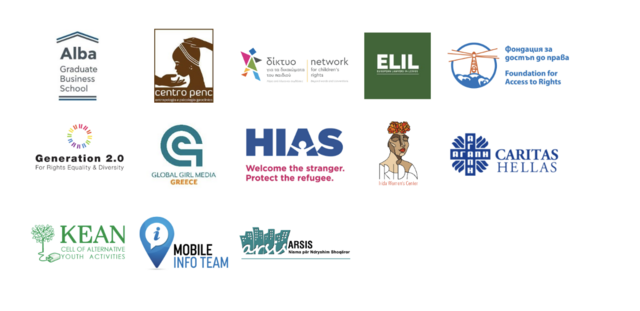
Email: IRCHellas.Info@rescue.org
Head Office: 4 Chrisomallousis Street, Mytilene, 81131: (+30) 22510 54338
Annex: 64 Panepistimiou Street, Athens, 10564: (+30) 2103809267
GEMI (General Electronic Commercial Registry): 135449242000
